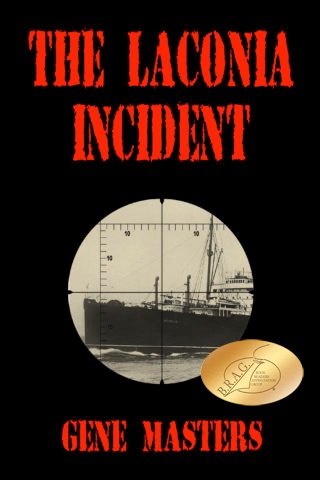“There is only one overriding standard for military capability: lethality.”
By Gregory Newbold | Published Feb 10, 2022
Many Americans, particularly our most senior politicians and military leaders, seem to have developed a form of dementia when it comes to warfare. The result is confusion or denial about the essential ingredients of a competent military force, and the costs of major power conflict. The memory loss is largely irrespective of political bent because all too many are seduced by a Hollywood-infused sense of antiseptic warfare and push-button solutions, while forgotten are the one million casualties of the Battle of the Somme in World War I, or the almost two million in the Battle of Stalingrad in World War II.
This “warfare dementia” is a dangerous and potentially catastrophic malady, because the price for it could alter the success of the American experiment and most assuredly will be paid in blood. The condition is exacerbated and enabled when the most senior military leaders — those who ought to know better — defer to the idealistic judgments of those whose credentials are either nonexistent or formed entirely by ideology.
The purpose of this essay is to explain the fundamental tenets of a military that will either deter potential enemies or decisively win the nation’s wars, thereby preserving our way of life. What follows are the tenets of Critical Military Theory:
1. The U.S. military has two main purposes — to deter our enemies from engaging us in warfare, and if that fails, to defeat them in combat. Deterrence is only possible if the opposing force believes it will be defeated. Respect is not good enough; fear and certainty are required.
· Relevant Wisdom: “If we desire to avoid insult, we must be able to repel it; if we desire to secure peace, one of the most powerful instruments of our rising prosperity, it must be known that we are at all times ready for War.” George Washington.
2. To be true to its purpose, the U.S. military cannot be a mirror image of the society it serves. Values that are admirable in civilian society — sensitivity, individuality, compassion, and tolerance for the less capable — are often antithetical to the traits that deter a potential enemy and win the wars that must be fought: Conformity, discipline, unity.
Direct ground combat, of the type we must be prepared to fight, is only waged competently when actions are instinctive, almost irrationally disciplined, and wholly sacrificial when required. Consensus building, deference, and (frankly) softness have their place in polite society, but nothing about intense ground combat is polite — it is often sub-humanly coarse.
· Relevant Wisdom: “We sleep soundly in our beds because rough men stand ready in the night to do violence on those who would harm us.” Attributed to George Orwell, possibly originally from Richard Grenier.
3. There is only one overriding standard for military capability: lethality. Those officeholders who dilute this core truth with civil society’s often appropriate priorities (diversity, gender focus, etc.) undermine the military’s chances of success in combat. Reduced chances for success mean more casualties, which makes defeat more likely. Combat is the harshest meritocracy that exists, and nothing but ruthless adherence to this principle contributes to deterrence and combat effectiveness.
· Relevant Wisdom: “I shall see no officer under my command is debarred….from attending to his first duty, which is and always has been to train the private men under his command that they may without question beat any force opposed to them in the field.” The Duke of Wellington
4. A military should not be designed to win but to overwhelm. In baseball, you win if your total score is one run better than your opponent’s. In war, narrow victories incur what we call “the butcher’s bill.”
· Relevant Wisdom: “But these things do not belong to war itself; they are only given conditions; and to introduce into the philosophy of war itself a principle of moderation would be an absurdity.” Carl Von Clausewitz.
5. Wars must be waged only with stone-cold pragmatism, not idealism, and fought only when critical national interests are at stake. Hopes for changing cultures to fit our model are both elitist and naive. The failures of our campaigns in Iraq and especially in Afghanistan confirm this.
· Relevant Wisdom. “They enjoy playing poker with someone else’s chips.” B.V. Taylor
6. A military force’s greatest strengths are cohesion and discipline. Individuality or group identity is corrosive and a centrifugal force. Indeed, the military wears uniforms because uniformity is essential. The tenets of Critical Race Theory – a cross-disciplinary intellectual and social movement that seeks to examine the intersection of race and law in the United States, but which has the unfortunate effect of dividing people along racial lines – undermine our military’s unity and diminish our warfighting capabilities.
Recruit training teaches close order drill and the manual of arms (drill with weapons) not because they still have relevance to maneuvers on the field of battle, but because they instill a sense of how conformity creates efficiency and superior group results. Upon a firm foundation of cohesion, imaginative leaders can spark initiative and innovation. But when we highlight differences or group identity, we undermine cohesion and morale. Failure results.
· Relevant Wisdom: “Four brave men who do not know each other will not dare to attack a lion. Four less brave, but knowing each other well, sure of their reliability and consequently of mutual aid, will attack resolutely. There is the science of the organization of armies in a nutshell.” Colonel Ardant du Picq.
7. “The enemy gets a vote.” An objective lens for military theory is how the nation’s foes regard our martial ethos; after all, that is what constitutes deterrence…or lack of it. Ferocity, not sensitivity, prevails.
· Relevant Wisdom: “We will not fight them. They are not normal. When we shoot at them, they run towards us. If we fight them, we die. They are worse than the sons of Satan.” Taliban radio intercept after engaging U.S. forces.
8. Infantry and special operations forces are different. The mission of those who engage in direct ground combat is manifestly distinct, and their standards and requirements must be as well. Not necessarily better, but different. For direct ground combat units, only the highest levels of discipline, fitness, cohesion, esprit, and just plain grit are acceptable. Insist on making their conditions and standards conform to other military communities, and you weaken the temper of steel in these modern-day Spartans.
· Relevant Wisdom: “It is fatal to enter a war without the will to win it.” General Douglas MacArthur.
9. Those who enlist in our military swear an oath to carry out dangerous, sometimes fatal duties. We call it “being in the service,” because it’s service to others….selfless sacrifices when the other option was often more comfort, freedom, individuality, and higher pay. Those who occupy the most senior ranks of the military must repay this selflessness with courage that is even rarer — moral courage. Civilian control of the military is indisputable, but its corollary is the ordinary principle that advice is sought, offered, and seriously considered before crucial decisions are made. My personal experience provides examples — the willful exclusion of military judgments in the build-up to the Iraq War with the attendant consequence that the invasion force was too shallow (thereby creating a vacuum which the insurgents quickly filled), and the decision to disband the Iraqi Army (the single most unifying institution in that country) after the collapse of the Baathist regime. A more recent example worth considering involves the Afghanistan withdrawal.
· Relevant Wisdom: “There’s a great deal of talk about loyalty from the bottom to the top. Loyalty from the top down is even more necessary and is much less prevalent.” General George S. Patton.
So what’s the problem? The problem today is one of both priorities and standards. We signal a dangerous shift in priorities (as just one example) when global warming, not preparedness to defeat aggressive global competitors, is considered the greatest problem for the Department of Defense and headquarters and rank inflation blossom out of control to the point that the support element greatly diminishes the ground combat element that wins wars. A problem of standards when every service and the Special Operations community dilute requirements based purely on merit in favor of predetermined outcomes to favor social engineering goals, and when new training requirements crowd out expectations and measurements of combat performance.
This principle is the most clearly and frequently violated in our current military environment. Although the examples are many, the most egregious sidestepping of scientific evidence occurred when the U.S. Marine Corps’ lengthy examination of the effects of integrated (coed) ground combat performance was refuted and ignored (often by those who hadn’t read it). This brings to mind the verbiage used in another context: “inconvenient truths.”
The critical tasks outlined above may omit some essentials, but these serve as a starter and perhaps as a wake-up call. We have witnessed extraordinary and sacrificial service by our Armed Forces — too good to squander by confusing our military’s purpose with those of individuals who don’t pay in blood for their errors. And too good for a foe to misjudge our intrinsic toughness. In any case, these are not Critical Military Theories; these are Critical Military Facts.
+++
Greg Newbold is a retired Marine Corps Lieutenant General who commanded at every level from platoon to division. His last assignment was as Director of Operations for the Joint Staff in the Pentagon. In retirement, he operated a science and technology think tank, and co-founded a private equity firm and consulting group. He has been a director on a dozen non-profit and for-profit companies.









